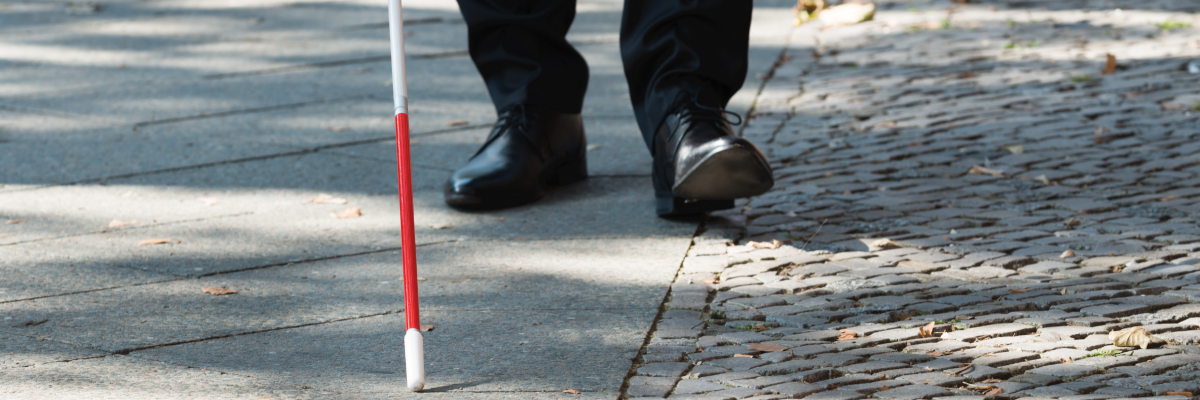By: Keya Osborne
Disability Justice is crucial in changing attitudes, addressing unconscious bias for people who are blind or low vision, and representing equity-deserving communities.
This TikTok video shows a social experiment between a black man using a white cane and a white man using a white cane. Both cane users seek assistance from people around them while walking. The white man receives a sighted guide, while the black man is ignored or has people recoil from him. It is apparent that the black man is approached with fear and as a potential threat compared to his white counterpart, despite both being representative of the sight loss community.
This social experiment highlights the critical importance of disability justice work and taking an intersectional approach within the blind and low vision community that includes the unique experiences of different groups. To change attitudes, we must call out the overt and subtle forms of discrimination that people living with intersecting identities and sight loss may experience.
This example is just one of the driving forces behind CNIB’s work to address issues facing equity-deserving groups who live with sight loss. For further resources on diversity and inclusion in the sight loss community, you can learn more at our We Are CNIB webpage.
